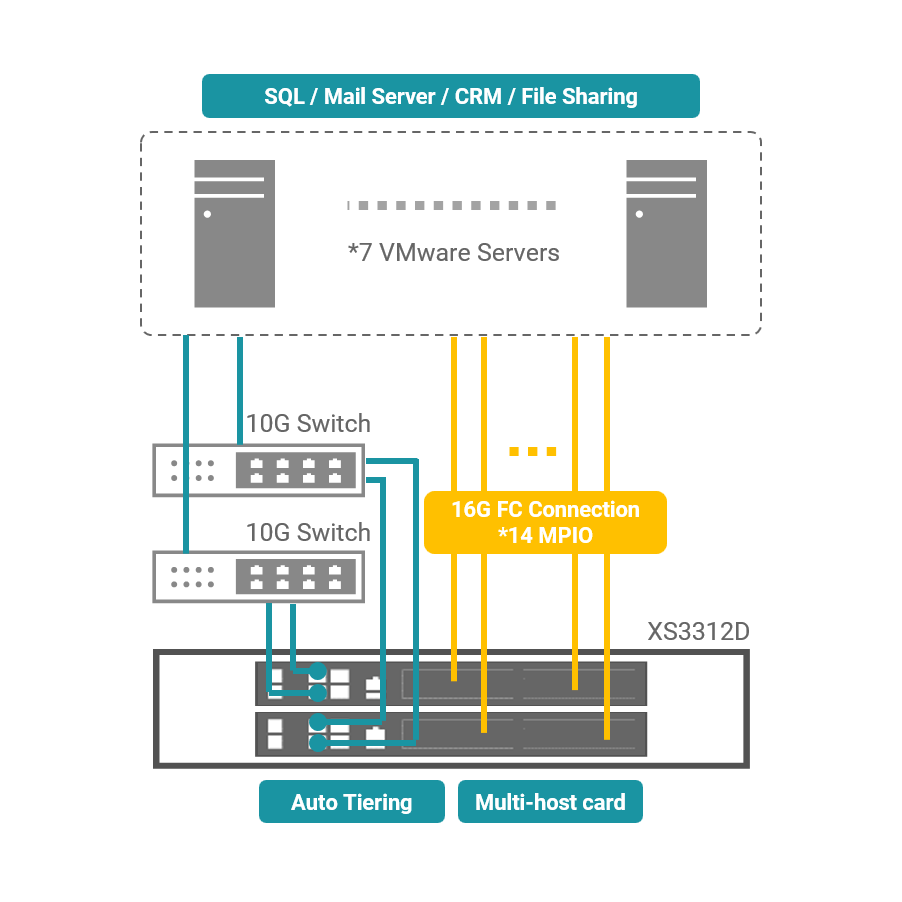A significant agricultural trading and logistics operator that leverages the export potential of the grain markets supplying the EEU (Eastern European) region.Thanks to its rather unique infrastructure, the company makes many contributions to increasing world food mobility.
The company group’s business is focused on the highest standards of responsibility and service in supplying domestic grain to the international market as well as providing farmers with other agricultural products related, etc., offering a quality level of export business under the principle of “one window”, solving any possible logistical problems, and conferring reliability of on-time delivery.
The group of companies is spread over several different locations, each with its own IT infrastructure, making centralized management increasingly complex. The virtual infrastructure is driven by VMware, supporting critical workloads such as SQL servers, mail servers, CRM, backup servers, file sharing, and other essential applications necessary for a modern enterprise.
However, as business operations expand, the demand for higher capacity, better performance, and enhanced reliability has grown significantly. To ensure seamless operations and future scalability, the group is undertaking a structured modernization of its IT infrastructure. This transition aims to improve efficiency, reduce downtime, and optimize resource utilization across all locations.
The existing storage system, which was once sufficient, can no longer keep up with the performance and capacity requirements. Additionally, many of the legacy devices have reached end-of-life status, making them incompatible with new technologies and unsupported by the manufacturer, further increasing maintenance costs and operational risks. As data volumes continue to grow, the need for a high-performance, scalable, and cost-effective storage solution has become more urgent than ever.

QSAN SAN storage stands out as the ideal solution, offering the perfect balance of price and performance efficiency. Utilizing the LFF model, it seamlessly integrates both high-speed SSDs and high-capacity NL-SAS drives within the same system, ensuring businesses can optimize storage resources without compromising on speed or capacity.
With intelligent auto-tiering technology, data is automatically migrated between storage tiers based on access frequency, maximizing overall performance while maintaining cost-effectiveness. This eliminates the need for an all-SSD infrastructure, allowing businesses to achieve high performance without excessive spending. Additionally, this setup ensures that frequently accessed data remains on faster SSDs, while less critical data is stored on high-capacity NL-SAS drives, improving storage efficiency.
Moreover, the existing iSCSI infrastructure has been significantly enhanced, improving overall network efficiency and storage accessibility. This upgrade not only boosts current operations but also strategically prepares the organization for future advancements. The improved iSCSI framework enables smoother data transfer, reducing bottlenecks and ensuring stable operations even under heavy workloads.
With a vision for scalability, the company plans to migrate to Fibre Channel (FC) interfaces to further enhance speed and reliability. While budget constraints currently prevent investment in costly FC switches, QSAN storage offers extensive FC port support, enabling direct server-to-storage connectivity. This eliminates additional hardware expenses, simplifies deployment, and ensures a smooth, cost-effective transition while maintaining high-speed, low-latency performance. By leveraging QSAN’s flexible and future-ready architecture, the company can gradually expand its storage capabilities without disrupting ongoing operations.
We’re here to help you find the best, most cost‑effective solution for your business.
Join the Future of Storage Tech – Subscribe in Seconds!